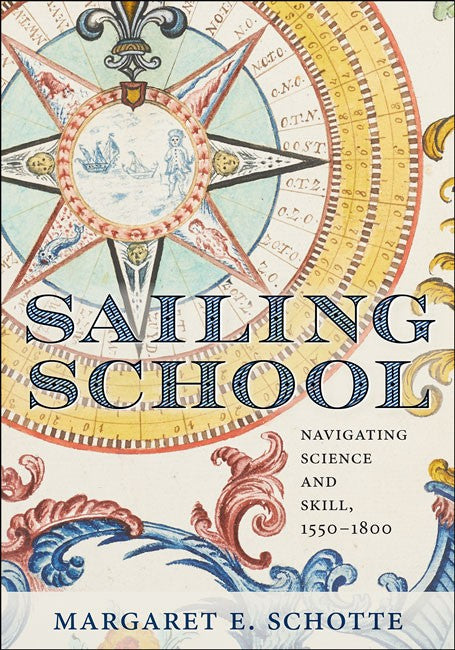"An enjoyable and enlightening read. Sailing School is an original, perceptive, and scholarly addition to work on the history of navigation and seafaring in a period that saw important changes across Europe. It should appeal to anyone with an interest in maritime history, as well as those interested in the history of science, mathematics, and education." Richard Dunn, Royal Museums Greenwich, author of The Telescope: A Short History
"Well-conceived and rich in empirical detail, this fascinating study traverses with ease between the worlds of print, teaching, and book learning and the worlds of seafaring, navigational practice, and instrumentation. Sailing School beautifully shows the extremely rich traditions of navigational print and the cross-dissemination across linguistic, political, and geographical boundaries. An outstanding, highly original piece of scholarship, this will be the standard, go-to book for years to come." Pamela O. Long, author of Artisan/Practitioners and the Rise of the New Sciences, 14001600
"Sailing School is a highly original book on navigation skills in early modern Europe. Drawing on a wide range of sources in many different languages, Margaret E. Schotte has written the first truly transnational history of nautical training, one which compellingly shows the crucial role of books. This is a brilliant contribution to maritime history and the history of knowledge." Karel Davids, Vrije Universiteit Amsterdam, coeditor of Innovation and Creativity in Late Medieval and Early Modern European Cities
"This careful and innovative book offers a challenging account of the various ways in which western European states discussed and planned the training of navigators in the period between the Renaissance and the Enlightenment. With its impressive analysis of the widest range of writings by mariners, educators, administrators, and mathematicians, Sailing School convincingly challenges received models of the transition from practice to print and from experience to theory in early modern Europe. In its subtle interpretations of shipboard life and technical expertise, this welcome publication will be essential reading for historians of education and of science, of maritime culture and of the emergence of modern systems of technical authority." Simon Schaffer, University of Cambridge, coauthor of Leviathan and the Air-Pump: Hobbes, Boyle, and the Experimental Life
"You might envision an early navigator tying knots and reefing sails as adroitly as he sets a course, but would you also credit him with a mastery of multiplication tables, trigonometry, and logarithms? Thanks to Margaret Schotte's personal voyage through several centuries' worth of seamen's texts from maritime countries, Sailing School teaches us what sailors had to learn on land to find their way at sea." Dava Sobel, author of The Glass Universe: How the Ladies of the Harvard Observatory Took the Measure of the Stars
"As voyages stretched into open ocean, mathematical expertise in celestial navigation became essential. Hands-on instruction with instruments remained key, but as historian Margaret Schotte reveals in this deft, scholarly chronicle, the nautical manual soon came into its own." Barbara Kiser - Nature

